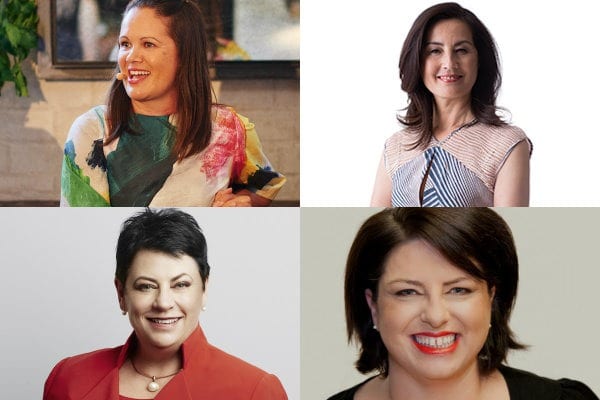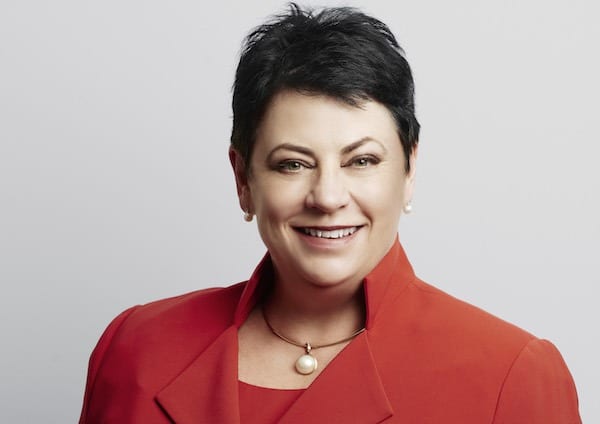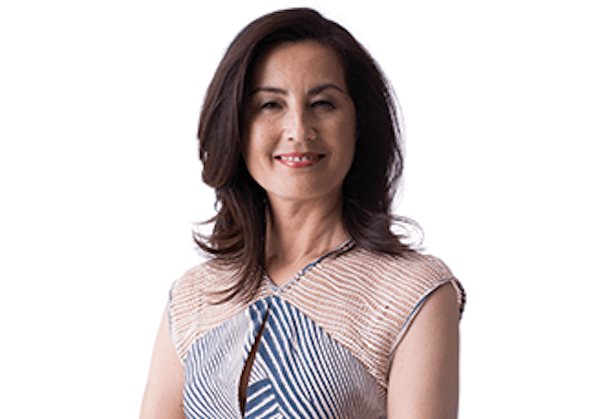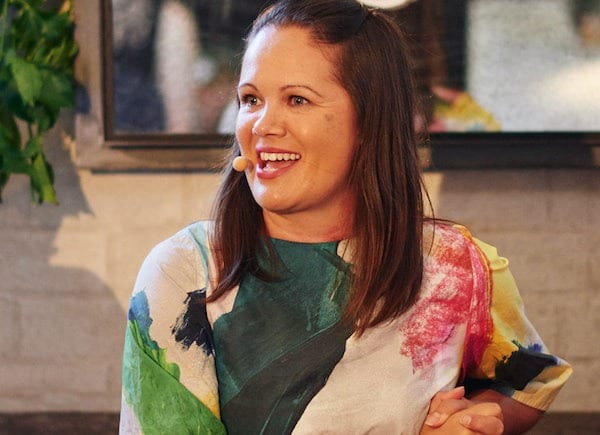Author Marianne Schnall declared it would be the ‘year of women’, given the energising and engaged voices of women that were rising. A number of major publications, particularly in the United States, predicted it would be a year of serious change.
In some parts of the world, significant wins have been achieved including women securing the right to drive in Saudi Arabia, and Ireland’s successful vote to repeal the 8th Amendment which effectively banned abortion in almost every instance.
In the United States, more than 100 women were elected to Congress for the first time in history, while a number of other records were smashed during the 2018 midterms.
Here in Australia it wasn’t such a winning year although there were definitely some bright moments — particularly in sport.
Asked whether this has been the ‘year of women’, author and commentator Jane Caro simply stated:
“I think it has been both a remarkable and a terrifying year. The more strides we make, the more resistance we face.”
We put the question to a number of well-known female leaders in Australia.
NICOLA WAKEFIELD EVANS
Non-Executive Director: BUPA, Lendlease, Macquarie Group, Clean Energy Finance Corporation, AICD. Chairman of the 30% Club Australia
“2018 was the year of women because we saw women in sport, business, politics and the arts catapulted into our consciousness, positively and negatively. However, Australia still has a problem with women in leadership.
Australian women performed much better than their male counterparts in a variety of sports including cricket, soccer and rugby (winning world championships and major tournaments where their male peers failed), but don’t get paid or sponsored to the same extent as their male peers.
The representation of women in politics, particularly in the Coalition, became a major talking point, with allegations of discrimination, bullying and harassment and the treatment of Julie Bishop in the leadership challenge.
We also saw the incredible rise of competent qualified independent federal politicians with Dr Kerryn Phelps joining Rebekha Sharkie and Cathy McGowan and then Julia Banks joining their ranks when she defected from the Liberal Party, against the backdrop of the Coalition seemingly incapable of promoting and endorsing female candidates.
Women in business were on the front page for great reasons; the appointment of Shemara Wilramanayake as CEO of Macquarie Group, the increase in female non-executive directors on ASX200 companies from 26.2% to 28.4% and more female ASX200 chairs including Viccki McFadden, Christine McLoughlin and Kathryn Fagg and negative reasons; the backlash as a result of the fallout from the Financial Services Royal Commission including the treatment of Catherine Brenner and female directors generally by the press and ongoing sniping about the credentials and qualifications of women in business.”
Nareen Young
Industry Professor Indigenous Policy (Indigenous Workforce Diversity), Jumbunna Institute of Indigenous Education and Research at the University of Technology, Sydney
“Depends on your definition, really. In the US, diverse and minority women clearly came out and voted for diverse and minority women, and some of those women were elected to office. Their work to effect change for their own communities will be immense in the environment they’re in, but that movement makes me happy.
Here in Australia, the most telling policy item that said it all about the year in Federal politics was the genius move on the part of the Federal government that women draw on their own scant superannuation to access basic services (emergency accommodation etc) that governments should provide (not pie in the sky or middle class entitlements) when leaving domestic violence situations.
That’s the super, my friends, that is a component of your wages, not a middle class or optional entitlement on the part of employers, that is quarantined so that you can live with some form of dignity once you are past earning age. The super that’s intent is so that we’re not reliant on government and have some element of choice about how you live when we’re old. The federal government wants you to spend it as you’re leaving a domestic violence situation.
What can we expect of a government whose own culture around women is so woefully bad that the representation of women in its ranks is way behind any other institution in the country and that women defect from it due to its bullying culture? What can we expect of a government whose own deputy leader spent half of the year talking about his personal soap opera that featured his inability to treat women with any respect? We need leadership change and we need it soon. What we are dealing with is simply abhorrent.
The year went on. It gave me some comfort to see the Human Rights Commission belatedly focusing on an issue that impacts on all women, sexual harassment, and work I would argue from evidence it should have been focusing on for many years, instead of the promotion of women onto company boards but in terms of my own identity and interest as an Australian, Indigenous women died and gave birth in custody in increasing numbers, still cope with horrific domestic violence that nobody outside Indigenous communities ever remarks is also often committed by non-Indigenous men and still deal with the undiagnosed illness of Australian racism and bias towards them in most everyday situations, and refugee women are still living and raising and tending to their children in situations of incarceration. Can you imagine? Simply for fleeing somewhere you can’t live anymore?
We must do better as a country. 2018 was actually woeful for women in Australia.
Hopefully 2019 will see some much needed change in leadership that no longer focuses on tedious culture wars and deals with issues of life and leadership.”
MARINA GO
Non-executive director, author and founding publisher of Women’s Agenda
“2018 was a year of extremes: while there were significant gains and highlights for women, there were also real low points of regression.
In sport, politics and journalism-led justice, women celebrated victories this year.
A 2018 sports survey, The Benchmark Report, determined that national women’s teams: the Pearls (sevens rugby), the Matildas (soccer), the Diamonds (netball) and the Opals (basketball), in that order, have a deeper emotional connection to Australians than any of the national men’s teams. The survey placed them as the top four of all sports teams this year so 2019 should be an opportunity for the broadcast and sponsorship dollar gender gap to be reduced. Also, the rugby league women’s game was elevated to a national competition in 2018 and the Southern Stars (women’s cricket) has captivated the nation this summer in a way that the men’s team has spectacularly failed to do.
We witnessed the rise of the citizen politician, via women Independents, who decided to change the system in order to have real impact on outcomes. Kerryn Phelps and Julia Banks joined the ranks of the Independents in the House of Representatives with a palpable sense of purpose and have inspired other women to consider taking on Federal seats with a mood for change.
Teacher’s Pet podcaster journalist Hedley Thomas spent most of the year helping the police to piece together a puzzle that may finally lead to justice for Lyn Dawson, while the Four Corners team helped Saxon Mullins speak out about her horrendous experience for the sake of other victims and was acknowledged with a Human Rights award. And the all-female team of Tracey Spicer, Kate McClymont, Lorna Knowles and Alison Branley were rewarded with a Walkley for their efforts in kickstarting the #metoo movement in Australia by telling the stories of the women who accused Don Burke.
But when it comes to sexual harassment and violence against women, 2018 was another shocking year.
68 women have been killed by violence this year, 26% more than the same period last year, and it still hasn’t registered with our political leaders that we have a national crisis on our hands.
A friend was telling me that her 19-year-old daughter wouldn’t even consider going to a pub, club or music festival wearing a dress or skirt, so rife is the physical sexual harassment. The sheer frequency of public accusations against men, from politicians to footballers, has been overwhelming. Perhaps it was always thus and the #metoo movement has given women the courage to speak out. As we move on from 2018, surely enough is enough.”
MIKAELA JADE
Leading entrepreneur, founder Indigital
“Was this the year of the woman? Nation-wide, I don’t think so. You only have to look at the rates of gender-based violence in Australia, the chasm between women and men in STEM, and the small percentage of women in strategic leadership roles in politics. If this is the year of women, I hold grave fears for my two daughters in subsequent years.
In saying that there was a national shining light this year elevating women’s leadership.
The Aboriginal and Torres Strait Islander community embraced women’s’ leadership this through this years NAIDOC theme: Because of her, we can. What I saw develop from this theme was community-wide celebration of all women do, at home, in communities and through our work.
It showcased Aboriginal and Torres Strait Islander women’s leadership in all it’s forms, and I saw many men and women stand proud this year repeating ‘Because of her, we can’ at every event.
I was moved to tears a number of times this year hearing men and women in our community sharing deeply personal sentiments about the important women in their lives, and the impact they had had on their own success.
It certainly was a strong theme that coloured the majority of events I attended. It also shaped my decision to invest in 31 Aboriginal and Torres Strait Islander women to learn cutting edge technologies through our program ‘Digital Custodians’ together with Microsoft, Shared Path and Indigital.
I was very lucky being a mutli-award winner this year for some powerful female awards, so was able to attend some fantastic female leadership events, build female collaborations and network with other women in business. I don’t really want to say any year is the year of the women – it should be every year, and so deeply embedded in our national culture that we actually don’t need to talk about it any more.”






